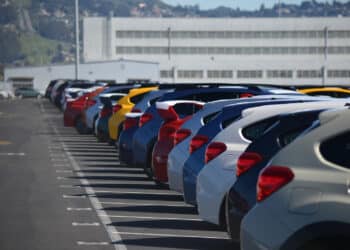Pricing for Affordability: Fair’s Mobility Structure Explained

Plenty of new startups are experimenting with the new models of car ownership and for the mobility company Fair, that thinking extends to a fundamentally new way of thinking about a consumer’s credit and how to price a vehicle, the co-founders told Auto Finance News.
“For 100 years, we have been making people borrow money to buy a depreciating asset for which they have no ability to understand what it’s going to be worth,” said Scott Painter, co-founder and chief executive. “The real cost of ownership on a car loan is not what you pay every month, it’ what you pay every month plus what you lost on the car divided by the number of months you were paying. The real cost of ownership is something we’ve been asking consumers to shoulder for a number of years, and we’re at a point where you don’t need to push that risk off; we can predict that risk, we can evaluate that risk, and it’s a better deployment of capital for us to own the car and just charge an access fee that’s simple and manageable and completely revolutionizes the process for the customer.”
On the most basic level, Fair is buying used cars from dealerships and charging consumers to drive that vehicle for however long they desire. However, there is a lot of technology that goes into the pricing, which includes insurance, maintenance, and roadside assistance, and the price can run as low as $150 to $300 per month.
The company does a soft credit pull that doesn’t impact a user’s credit score and models an affordability index based on the statistic that the average consumer will spend 14% of their gross income on the mobility category — half of which is the car payment.
“Everything we do in the beginning of the app experience from a data collection point of view is getting to the bottom of that question — how much can you afford?” Painter said. “It turns out everyone can afford something. You could be a single mom, working two jobs and you can only afford X. We’ll show you a ton of cars in that price range … It works on the high end of the market and it works on the low end of the market because we aren’t trying to qualify you based on your credit score, we’re using your affordability index to determine how much you can afford.”

Additionally, the company runs a model on how much the same car you’re looking to buy on Fair would cost to finance on a traditional retail installment contract, and the company guarantees a lower price on its program. There are no down payments or starter fees — although the first few months will have a higher price tag initially — and Fair will not present cars the consumer can’t afford.
Traditionally, the residual value of a car is a big determining factor in how much a consumer will pay per month for the length of the term. But with Fair, there is no lease term as consumers can cancel on a week’s notice.
“The patterns are clear, cars depreciate in a predictable way,” Painter said. “Cars depreciate aggressively in earlier years and less in out years. It turns out when you start looking at all the data, you realize, ‘Wow, modern vehicles really don’t depreciate to much less than 10% of the original retail selling price after a decade.’ So it’s not depreciation to zero, it’s depreciation to about 10% to 15%. We began to model that data.”
Fair is also hoping to take advantage of the current used-vehicle market, which is depreciating amid high volumes of off-lease vehicles and could put pressure on the new-vehicle space.
Co-Founder and President Georg Bauer told AFN that he has big plans for how this model will transform car ownership.
“We are no longer in the lending business,” Bauer said. “We don’t look at the consumer and say, ‘look a Fico score, an income, they are a homeowner,’ and all those facets that traditionally you look at and then you need to assess a human beings ability to buy or lease four years, five years, six years out. With the flexibility built into the Fair model for a consumer to reserve a car at any time, delinquencies are a thing of the past.”
To hear more about Fair’s model, check out the 17th annual Auto Finance Summit, where Bauer will give a presentation on “The Mobile Landscape in Big Auto.” The conference will take place on Oct. 25-27 at the Wynn Las Vegas. To learn more about this year’s event — or to register — visit the Summit’s homepage here.














